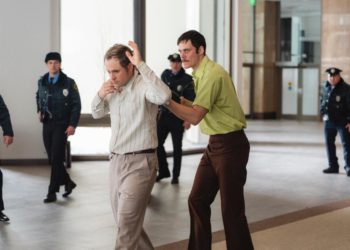Londoners on Monday crowded buses and piled into black cabs as the start of a four-day strike over pay and conditions ground the underground rail system, better known as the tube, to a halt.
The strike appeared to have been less disruptive, at least on its first day, than others in the past, as e-bikes, new transport links and the post-Coronavirus spread of working from home offered some commuters more options. But it was still a big headache for millions in the sprawling city, with traffic snarled and many buses standing-room-only just a few stops into their journeys.
“It’s just annoying,” said Blake Andrews, 42, an engineer who said he would probably work from home later in the week after his frustrating commute on Monday.
Dilek Mustafa, 54, waited for a bus transfer in a large crowd near the Angel station in the north London area of Islington, worried that she wouldn’t be able to make her chemo appointment for breast cancer. Ms. Mustafa said she was usually able to get there in less than hour but had already been traveling for 90 minutes and still had at least 40 minutes to go because of the traffic.
“I knew it was going to be late — but not this late,” she worried.
Denyse Mohan-Patel, standing nearby, peered down the street for a bus to Waterloo Station. Her train — for which she had bought a nonrefundable ticket — had just departed minutes earlier.
“It should have been really easy,” said Ms. Mohan-Patel, 51. She had already traveled for three hours from the far northern edge of London and, once she got to Waterloo, had a two-hour journey from there to see her mother.
On Tuesday morning, she said, she would have to do it all over again: She was taking her mother to Gatwick Airport, south of London, to catch a flight to Trinidad and Tobago, and then would need to somehow make her way back home.
She, like some other passengers, had little sympathy for the strikers. Tube workers, who frequently work inhospitable hours, are pushing to eventually move to a 32-hour, four-day working week. Drivers earned around 65,000 pounds in 2024, or about $87,000, a salary that is well above the average of around $51,000 in Britain.
“They have jobs,” Ms. Mohan-Patel, a health administrator, said of the tube drivers. “They should go to their jobs — and do their jobs.”
“I think it’s very unjustified,” said Jeff Horton, 64, who was waiting for a train on another system — the Overground — that was not affected by the strikes.
“I’m not saying that people should just blindly go to work and just accept everything that their bosses give them,” Mr. Horton added. But, he said, “it’s good money, compared to what a lot of people are earning.”
His daughter, Ruby Horton, 29, said that the strikes had disrupted Mr. Horton’s business — The 100 Club, a music venue in central London — because some people who couldn’t make it in had asked for refunds for their tickets. But, she noted, a win for the tube drivers could mean a win for other workers.
Some Londoners were philosophical about the strike, noting they had lived through such disruptions before.
“It’s part of life,” said Simone Smith, 47, as she boarded a bus to try to get to the seaside town of Margate. She said that she sympathized with the tube workers’ push to get better pay, even though her journey was taking much longer.
Though some had the option to work from home, others had little choice but to cram into overcrowded buses.
Mo Ibrahim, 25, works in sales. His typically 30-minute-long commute — which normally involved just two tube lines — had ballooned into a 90-minute journey with a trip on an overground train, two bus transfers and “a long walk.”
By lunch time, he was exhausted, he said. “It just puts my mood off.”
Amelia Nierenberg is a Times reporter covering international news from London.
The post London’s Commuters Wrestle With a Massive Tube Strike: ‘It’s Just Annoying’ appeared first on New York Times.




